Costa Blanca
Marine Surveillance increases coastline patrols to protect posidonia seaweed
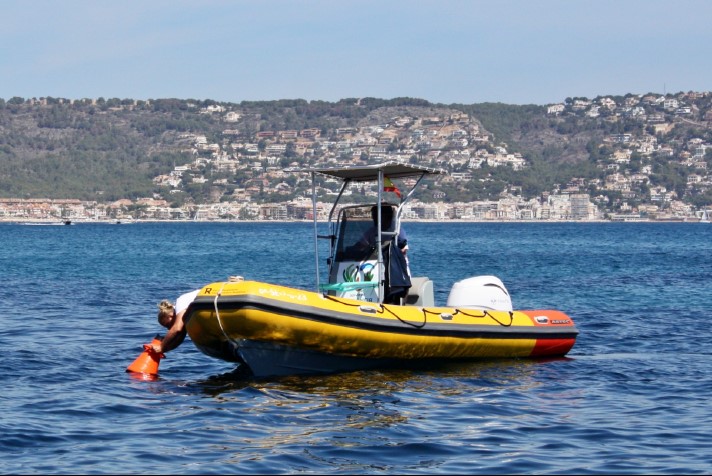
In order to safeguard posidonia seaweed, the Marine Surveillance Service examines 50,000 hectares of shoreline.
The Marine Surveillance Service of the Valencia region is currently surveying 50,000 hectares of coastline in an effort to preserve the posidonia meadows of the Valencian Community by creating a network to monitor marine species, ecosystems, and protected areas.
With the expansion of the surveillance network in 2024, this service—which is subordinate to the General Directorate of Natural and Animal Environment—has been present at sea for 810 days and has sailed more than 37,000 kilometres of the Valencian coastline, setting new records.
The largest deployment since the program’s inception in 2022, comprising a team of 19 marine professionals and eight vessels managed by the Ministry, is the surveillance device, as pointed out by Luis Gomis, Director General of Natural and Animal Environment.
Therefore, El Perelló, Dénia, Alcossebre, Oropesa del Mar, Xàbia, Calp, El Campello, and Torrevieja are the eight base ports from which the vessels embark for the work.
Two additional vessels will join the existing network of watchdogs in 2024 to do control and surveillance duties off the coasts of L’Albufera and Dénia. “This network for monitoring marine species, habitats and protected areas allows us to collect all the information of interest on nautical activity and to report on the ecological and regulatory importance associated with posidonia oceanica,” Luis Gomis stated.
In its three years of operation, the Marine Surveillance Service has successfully decreased the amount of anchors found in posidonia meadows. Environmental officials have also started boarding the service’s boats in September 2024 to report these breaches.
Five nautical clubs have begun a new initiative this year to disseminate regulations related to seagrass meadows: Club Náutico Oropesa del Mar, Marina El Portet in Dénia, Club Náutico in Moraira and El Campello, and the Real Club Náutico in Torrevieja.
Schedule for tracking
As part of the Posidonia monitoring plan’s presentation day in Alicante, the Spanish Department of Environment, Infrastructure, and Territory convened a group of specialists from throughout the country to assess the species’ situation in the Valencian Community.
The decline of our beaches, loss of biodiversity, and worsening water quality are all things that posidonia works to combat, as the head of the natural and animal environment directed attention to. “This species acts as a barrier against erosion, provides oxygen, and provides shelter for species of interest,” he continued.
Contamination by wastewater, hydrocarbons, and coastal building is a major threat to posidonia. Also, because people tend to anchor without thinking, water activities might lead to more direct attacks.
Preserving areas
Seagrass meadows, including Cymodocea nodosa meadows, are regulated for conservation in the Valencian Community by decree 64/2022. The Generalitat is designated as the entity responsible for surveillance, inspection, and control, and the necessity of a monitoring plan is contemplated in this decree.
Specifically, the conference-analyzed monitoring plan from 2024 defines a protocol for sampling places by depth ranges, from the beach to depths surpassing 25 meters, and investigates the conservation status of the Valencian Community’s meadows.
The project has enabled the creation of a network for monitoring the marine coastline and studying the nautical uses of each space in the Natura 2000 marine network. Researchers, law enforcement agents, and Maritime Rescue have received logistical support and technical advice from this network, thanks to the efforts of coastguards and environmental agents.
Our seagrass meadows “are currently in a good state of conservation, however, there is a wide margin for improvement in their recovery in those areas where they have been reduced or disappeared,” Gomis noted during this session. “It is our duty and our responsibility to redouble our efforts and work side by side towards this common goal,” he added, hence the reason.
Discover more from Costa Blanca Daily
Subscribe to get the latest posts sent to your email.
Costa Blanca
Alicante company is being investigated for selling bananas as Canary Island bananas

The Guardia Civil has investigated a company in the province of Alicante for many crimes, including illegally selling bananas from Madeira (Portugal) as if they were Canary Island bananas at more than double the price. In addition to the alleged fraud, the company’s authorisation to market bananas of this kind has been cancelled. The Guardia Civil estimate that in 2023 alone, they sold about two tonnes of bananas.
Investigators probed the corporation last April for two crimes against industrial property, one of document fabrication, and a fourth felony involving the market and consumers. The proceedings were transferred to an Investigative Court in San Vicente del Raspeig, and administrative proceedings have been initiated for infringement of Regulation (EU) 2024/1143 of the European Parliament and Council, which might result in fines ranging from €4,001 to €3,000,000.
The Guardia Civil’s Seprona (National Police) launched the operation in response to a complaint from an association of Canary Island banana producers, whose trademark has been registered by European authorities and is protected under the Protected Geographical Indication (PGI) due to its distinctive characteristics. Only certified operators are allowed to market it.
According to the allegation, a corporation with premises in the Alicante region was distributing Canary Island bananas despite having a suspended trading authorisation. It further warned that it could promote bananas from Portugal and other nations as PGI Canary Island Bananas.
Agents from Alicante Seprona (National Agency for the Protection of Animals) began their investigations and conducted multiple inspections of the company’s storage and ripening chambers. They also conducted additional inspections and verifications at other locations in Alicante, Valencia, Vigo, and Bilbao, where the goods were purportedly marketed by the Alicante firm.
The agents were able to confirm many batches of Madeira bananas sold as Canary Island bananas. They also verified that the company’s marketing licence for selling under this brand had been cancelled.
The Spanish National Police (Seprona) has confirmed that the corporation manipulated paperwork and invoices while concealing the product’s marketing from the certifying company and the government. According to the Guardia Civil, the government had earlier rescinded its marketing authorisation for this product after discovering irregularities in its operations.
The Guardia Civil claims that it has certified the sale of approximately 2,000 tonnes of bananas by the company under investigation in 2023 alone but cannot prove the regularity of the sale of the majority of these goods.
The operation was carried out by the Seprona (National Police) of the Alicante Civil Guard Command, in close conjunction with the Valencian Government’s Agri-Food Quality Control Service, and data was shared with authorities in other countries via Europol.
In the fight against food fraud, Seprona conducts regular inspections of the various types of establishments involved in the various stages of food production and sales to ensure they comply with the necessary and mandatory requirements and guarantees, preventing consumers from being defrauded or exposed to any type of health risk. The programme identifies abnormalities in the counterfeiting, adulteration, labelling, illicit trading or distribution of food goods, as well as financial fraud involved with their sale.
Discover more from Costa Blanca Daily
Subscribe to get the latest posts sent to your email.
Costa Blanca
National Police dismantle a criminal group in Valencia and Alicante specializing in violent robberies

A violent criminal gang that stole costly watches in Valencia and Alicante has been apprehended. The national police have disrupted a violent criminal organisation that specialised in the theft of costly watches. Seven people have been detained, six men and one woman, for alleged robbery with violence and intimidation, assault, and public health. They scared the victims with a firearm, bashing one of them in the head with the rifle’s buttstock before leaving on a motorbike.
During the searches, the firearm used in the robberies was seized, as were various quantities of drugs and a high-end watch.
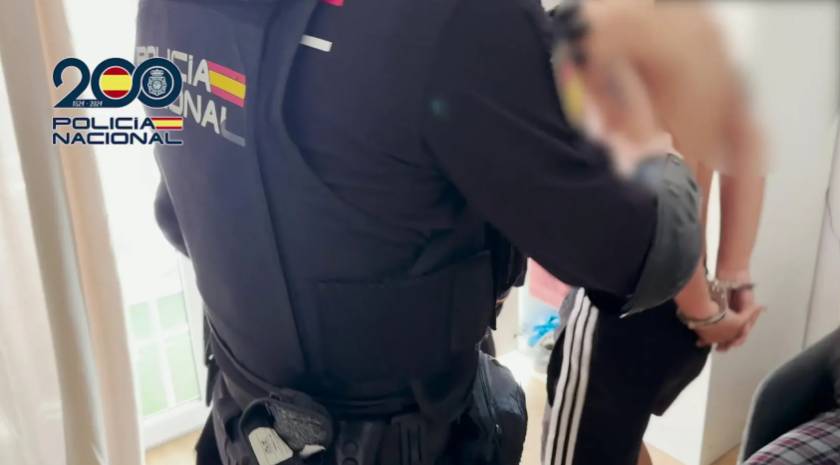
The inquiry began in February, after a violent robbery of a watch was reported in Alicante. The victim said that while exiting a nightclub, he was struck in the head and fell to the ground, where two males stole his watch and fled the scene.
They committed one robbery every week
As the inquiry developed, authorities discovered two further robberies, including intimidation, conducted within two weeks of the first occurrence in Alginet (Valencia) and Alicante, respectively. In both cases, the victims were threatened with a firearm in order to steal their luxury watches, and they fled the scene on motorbike.
Highly specialised and nomadic criminal organisation
Throughout the inquiry, it was discovered that the members of this criminal organisation were highly specialised. They carried out the robberies quickly and were well-versed in the area. Furthermore, they were exceptionally competent in distinguishing high-end timepieces, which yielded the highest profit. Given their scarcity and high worth, these watches appreciate swiftly in the current secondhand market, allowing you to make more money from a single item.
Following the investigations and identification of the alleged perpetrators, a police operation was launched on April 29th, culminating in the arrest of six people in Madrid and another in Cuenca on charges of belonging to a criminal group, robbery with violence and intimidation, assault, and harm to public health. Following their appearance in court, two of those detained were sentenced to prison.
Discover more from Costa Blanca Daily
Subscribe to get the latest posts sent to your email.
Costa Blanca
Dutch technology for a smart loading and unloading pilot project in Alcoy

Alcoy has established a smart loading and unloading pilot project at the Rodes Urban Technology Park. The City Council’s Urban Sandbox created this first international project in conjunction with the Dutch startup Coding the Curbs, a European leader in digital urban road space management. This programme, which is free of charge to the city council, is being developed by the company with a Dutch government grant.
In addition, four parking places for people with limited mobility have been fitted with sensors, two on Calle Sant Antoni and two on Calle Sant Joan, to collect real-time data on usage patterns and peak demand. This programme will enable the City Council to make data-driven decisions on accessibility and parking policies.
The pilot will operate until January 2026. Beginning in the summer, preliminary data from the three test sites will influence conversations about potential expansions to additional places in the municipality, as well as the changes required to optimise its execution.
Digitally controlled loading and unloading
The smart loading and unloading zone is digitally managed and allows logistics and delivery businesses to reserve it via an online portal, thereby optimising the use of this type of public space. In addition, during the trial time, anyone can make a reservation to test how it works.
The technology allows customers to reserve a parking space for 30 minutes by visiting the online platform—via a website, without needing to install an app—or scanning a QR code at the place. If the spot is available, the app confirms the reservation and allows you to use it at that time.
Signage and road markers clearly identify the test sites, and IoT sensors have been integrated to offer real-time availability information. This enables drivers to schedule their deliveries ahead of time or alter their routes on the fly, resulting in increased logistical efficiency and reduced vehicle traffic congestion. The pilot test will assess both the deployed sensors and the company’s software in a real-world scenario, with the Local Police and the Alcoy City Council’s Mobility Department collaborating.
The initiative is part of Alcoy’s Local Green Deal (LGD), which encourages more sustainable urban development models. It is also the first international collaboration under the city’s Urban Sandbox policy, which focusses on experimenting in real-world settings and agile innovation to address key urban concerns.
Coding the Curbs, founded in Amsterdam in 2020 as a collaboration between The Future Mobility Network and Fronteer, has expanded its activities to cities such as Utrecht, Groningen, Rotterdam, and Copenhagen, and participates in benchmark programmess such as YES! Delft, the DMI Ecosystem of the Dutch Ministry of Infrastructure, and the EIT Urban Mobility network of the European Institute of Technology.
Iskandar Tange, the company’s CEO and co-founder, travelled to Alcoy recently with Jaap Tjebbes, project manager and product manager, to oversee the installation of the pilot area, which is located on Agres Street, across from the Rodes Technology Park, with municipal specialists.
Toni Francés, the mayor of Alcoy, stated that with this project, “Alcoy strengthens its commitment to open urban innovation and establishes itself as a real testing ground for technological solutions applied to the city.” We are dedicated to developing more efficient, sustainable, and accessible urban environments, and this project allows us to test and evaluate solutions that can be extended to other parts of the municipality or even reproduced in other cities.”
Discover more from Costa Blanca Daily
Subscribe to get the latest posts sent to your email.
-
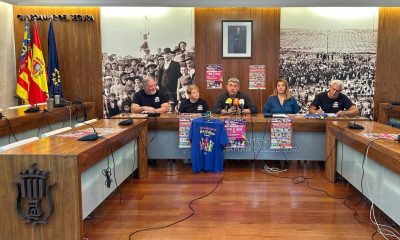
 Costa Blanca5 days ago
Costa Blanca5 days agoThe El Raso, Guardamar celebrates with a Tapas Route and concerts between May 15th and 17th
-
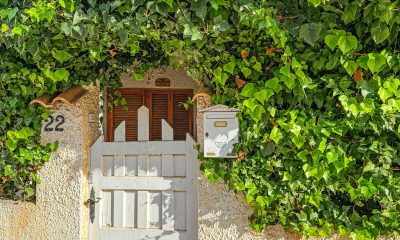
 Costa Blanca2 weeks ago
Costa Blanca2 weeks agoResidents of El Mojón in Pilar de la Horadada will receive mail at their homes
-

 Costa Blanca2 weeks ago
Costa Blanca2 weeks agoAena closed the first quarter of 2025 with a profit of 301.3 million euros
-

 Costa Blanca2 weeks ago
Costa Blanca2 weeks ago27 members of the Mara Salvatrucha gang arrested in Madrid, Barcelona, Tarragona, and Guardamar
-
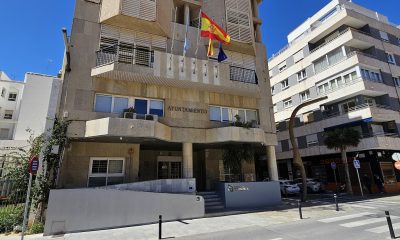
 Costa Blanca2 weeks ago
Costa Blanca2 weeks agoGreen light for drafting of park-and-ride parking project in Torrevieja
-

 News1 week ago
News1 week agoFour people arrested in Alicante province for storing and exchanging child pornography
-
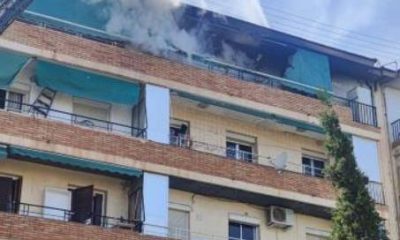
 Costa Blanca2 weeks ago
Costa Blanca2 weeks agoSquatter arrested after setting fire to a house in Alicante
-

 Costa Blanca5 days ago
Costa Blanca5 days agoAP7 Motorway tunnel at Pilar de la Horadada CLOSED due to fire
